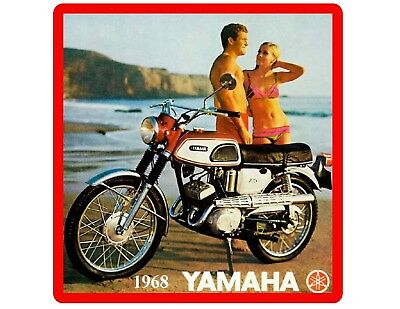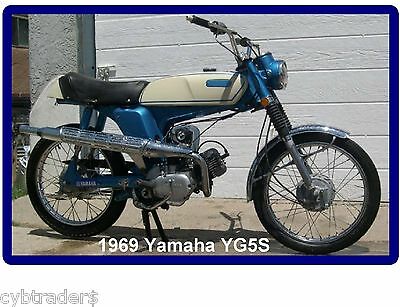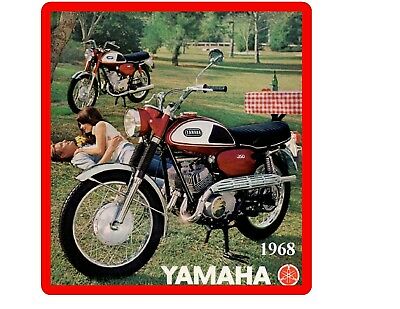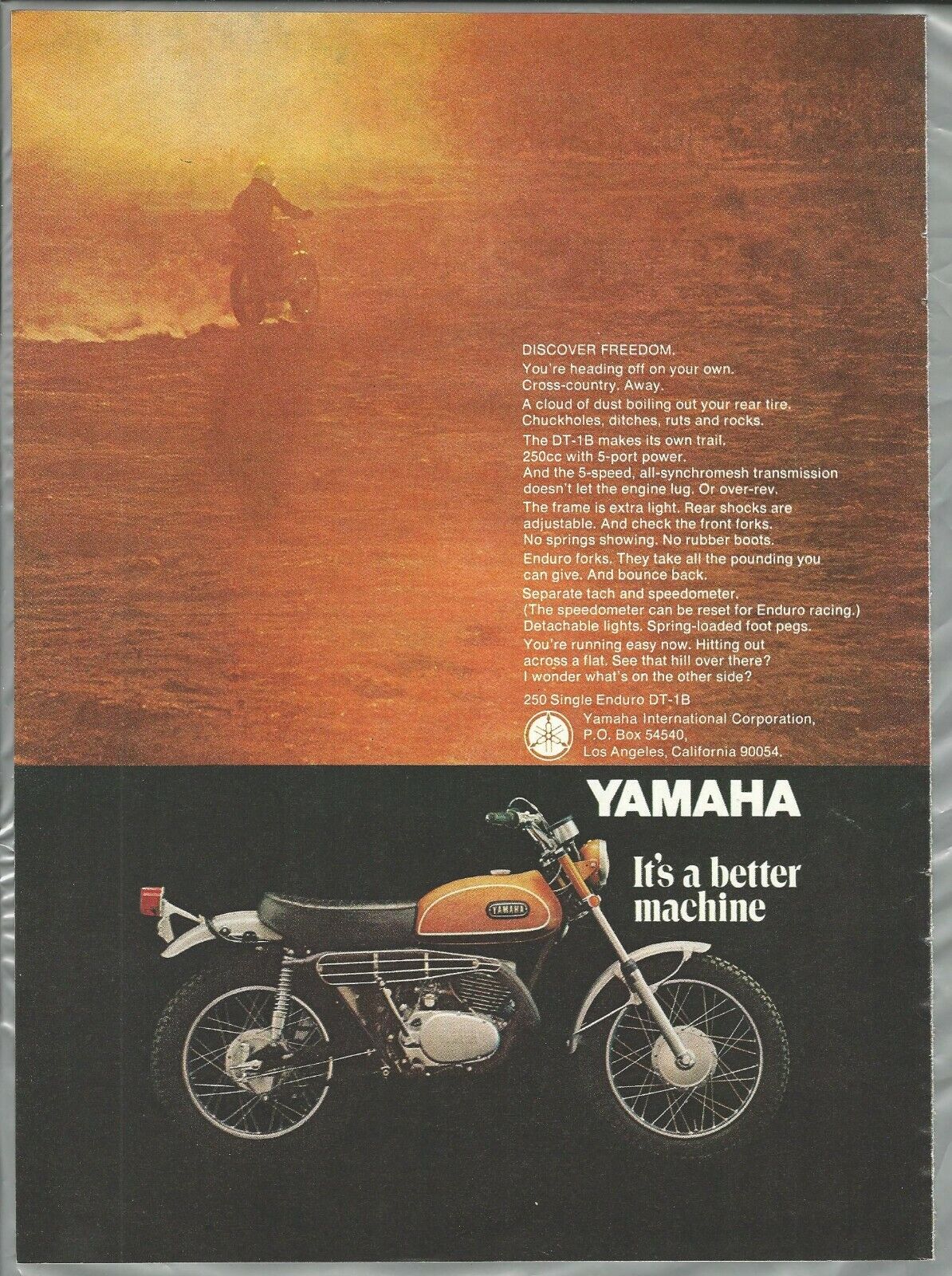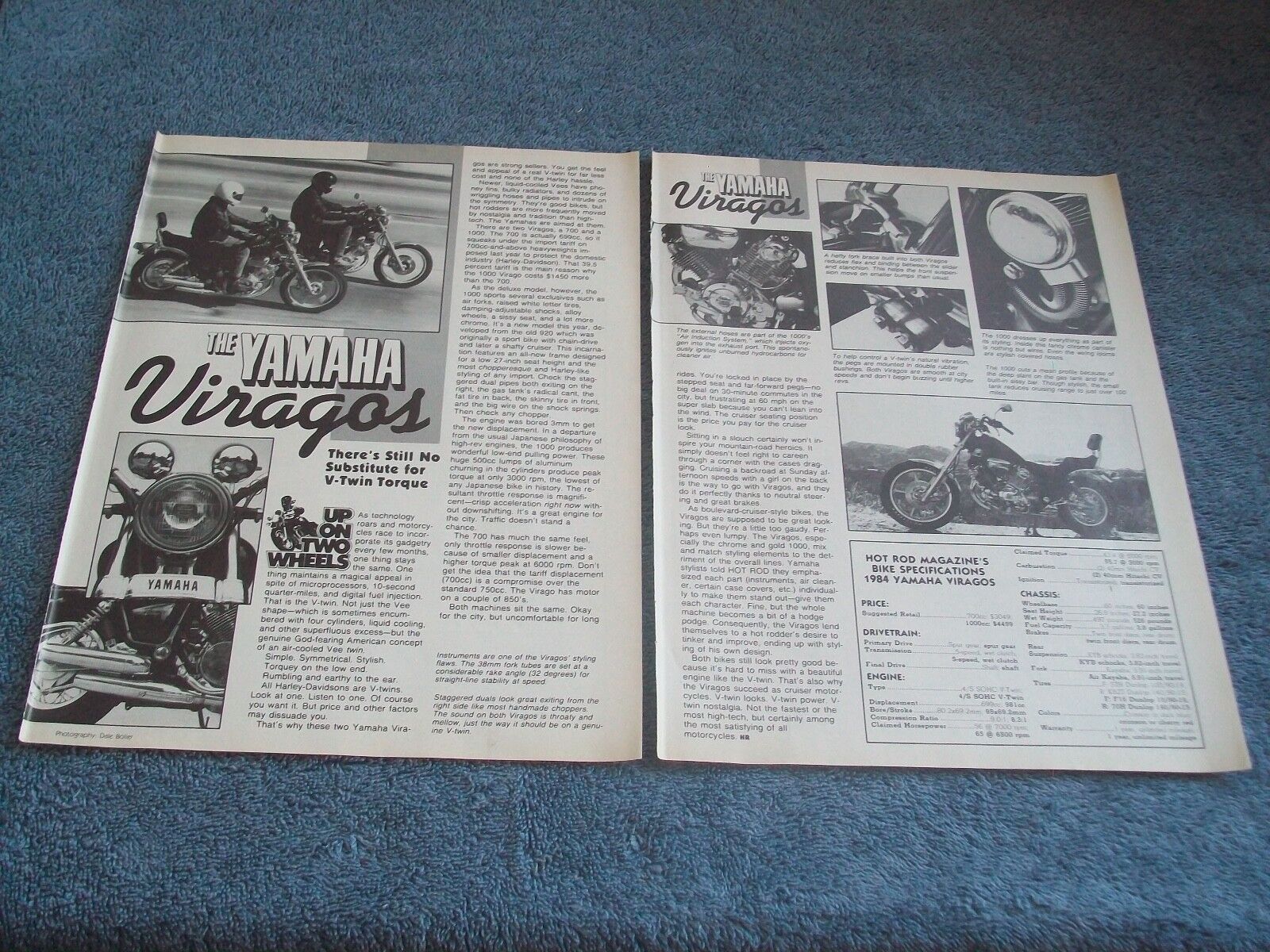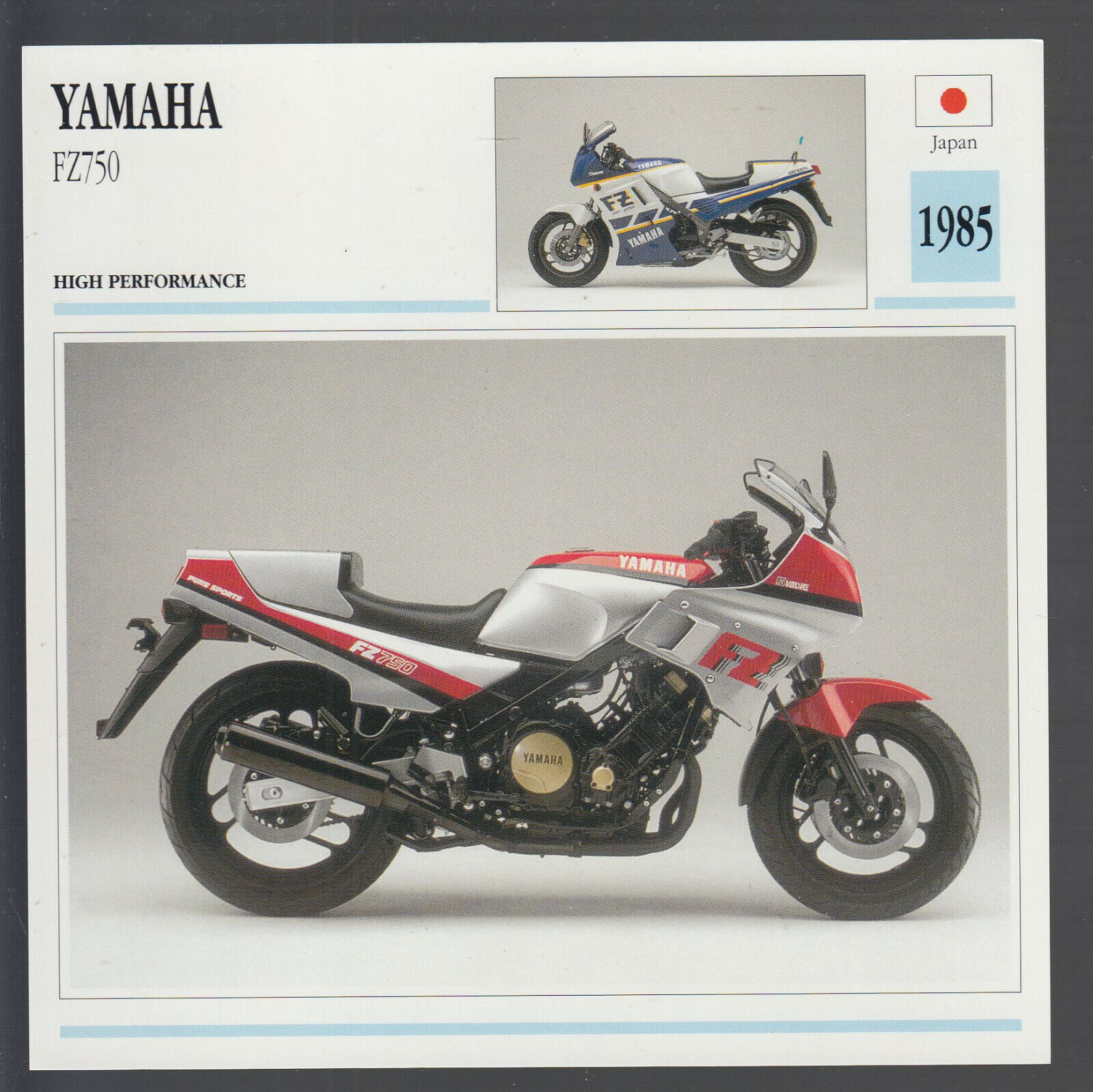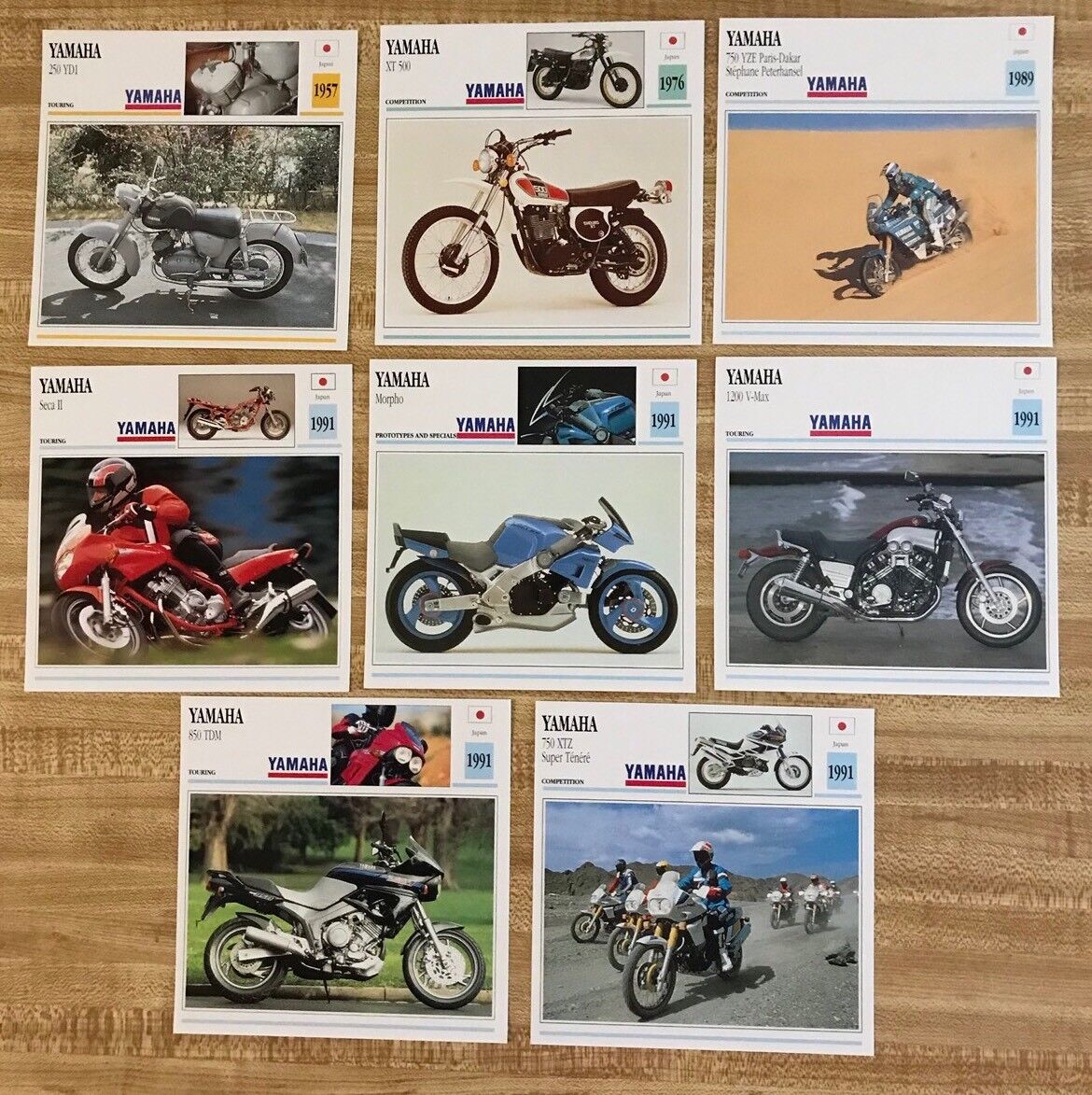-40%
1969 Yamaha 250cc Street Scrambler - 4-Page Vintage Motorcycle Road Test Article
$ 7.04
- Description
- Size Guide
Description
1969 Yamaha 250cc Street Scrambler - 4-Page Vintage Motorcycle Road Test ArticleOriginal, vintage magazine article
Page Size: Approx. 8" x 11" (21 cm x 28 cm) each page
Condition: Good
Yamaha 250cc
Street Scrambler
Crammed with improvements learned the hard way
on every race track in the country, the new DS6-C
is smoother, faster, and better handling.
At approximately 12-month intervals, we
get a new Yamaha 250cc twin-cylinder sports/
touring bike to test ride. This has been an
annual affair for about seven years, and al-
though these tests have brought us few sur-
prises, each new model has represented a sig-
nificant improvement over earlier versions.
Sometimes the most apparent change is a
boost in power; at other times, it will be a
series of detail modifications enhancing reli-
ability. And at all times, you can trace the big
changes directly to Yamaha’s racing program.
Not their Grand Prix effort, although that is
sure to have its effect on Yamaha production
motorcycles in due course. The real source of
improvements incorporated in the street Ya-
mahas is that company’s involvement in our
AMA competition-where the rules require
that people race what they sell.
Back in 1962, when we tested the then-
new YDS2 Yamaha (itself a sporty, improved
version of the YD2), there was already a Ya-
maha TD1 “production” racer. The former
was an entirely satisfactory bike when judged
by the standards of that year, and the TD1
won a lot of short races. Longer races were a
problem, because the TDl’s crankshaft (iden-
tical to that in the YDS 2) was just a tad spin-
dley. It would take the touring engine’s
power, but with racing cylinders and expan-
sion chambers the pressure was increased
enough to shear-off the long left-side exten-
sion that carried the clutch.
Soon, there was a new Yamaha production
racer: the TD1-B. This one had a stronger
crank, with all of the shaft diameters in-
creased, and a stronger transmission as well.
All very wonderful for the racing fraternity-
and perhaps even more wonderful for the
street riders, because there was also a new
touring 250: the YDS3. Both models were
given an extra shot of power, and both proved
to be more reliable and faster than before.
However, the racing version was something
less than 100% reliable. That small-diameter
clutch, cantilevered out on the end of the
crankshaft and turning at engine speed, was
fragile. By this time, the TD1 engine was be-
ing spun 10,500 rpm, and delivering 35 bhp
into the clutch. So some of the clutches just
exploded. Again, the touring version was fair-
ly reliable-although it must be said that even
on the lower-powered bike the clutch was
grabby, and likely to warp out of balance.
All of which brought about the Yamaha
TD1-C, which had improved crankshaft and...
12656-6907-04

